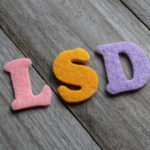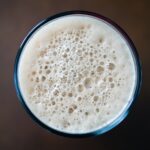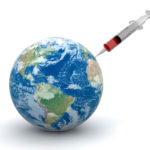A drug is a chemical substance that acts on the brain and nervous system, changing a person’s mood, emotion or state of consciousness. Drugs are often classified by the effect they have.
Stimulants, such as cocaine, make people feel full of energy. Depressants (or sedatives), such as heroin, make people feel relaxed. Hallucinogens, such as LSD, make people see, feel or hear things that are not real. Drug or substance misuse is when a person regularly takes one or more drugs to change their mood, emotion or state of consciousness.
LSD: can psychedelics treat mental illness?

Anya Borissova summarises a recent systematic review which brings together all of the randomised controlled trials of LSD as a treatment for mental illnesses, including alcohol and heroin dependency, depression and anxiety.
[read the full story...]









